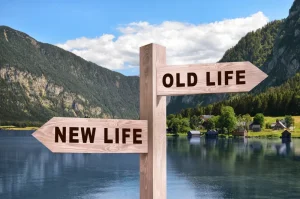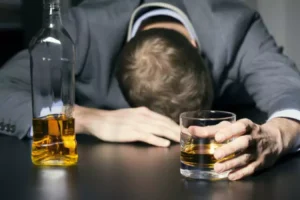Understanding how a relapse happens is an important prevention strategy because you learn to recognize the signs and course-correct before you start using again. According to the model developed by Marlatt and Gordon, a relapse begins with a high-risk situation that is followed by a poor coping response. Then, they might believe that drugs and alcohol will feel good and alleviate these negative feelings, and this chain of events can lead to a full-blown relapse where a person returns to uncontrolled use.
What Are The Stages Of Relapse?
- Our compassionate team will help you start life fresh with the tools, coping strategies and resources you need to succeed.
- For instance, naltrexone has been shown to lower the risk of relapse in alcohol use disorders, with several needed-to-treat to prevent a return to any drinking.
- Kaplan-Meier survival curves were calculated for time to relapse.
- It’s important to understand that relapse doesn’t mean your drug or alcohol abuse treatment plan has failed.
- Mutual support groups are usually structured so that each member has at least one experienced person to call on in an emergency, someone who has also undergone a relapse and knows exactly how to help.
- After all, you are trying to learn healthy ways of living without alcohol or drug use during treatment.
Healthcare providers play a crucial role by offering therapy, relapse prevention plans, and resources like support groups. These professionals guide individuals through the stages of recovery, helping them to identify and manage triggers that may lead to relapse. Therapy sessions are instrumental in developing new coping skills and providing personalized guidance, while support networks offer encouragement and understanding. Experiencing a relapse can be a distressing event, often accompanied by negative emotions such as guilt, shame, and frustration.
Remind yourself that addiction is a disease, not a character flaw.
- Self-care helps minimize stress—important because the experience of stress often encourages those in recovery to glamorize past substance use and think about it longingly.
- Flare-ups also occur in other autoimmune diseases, such as lupus, rheumatoid arthritis (RA), and inflammatory bowel disease (IBD).
- Recognizing the signs of a potential relapse and having a robust support network can also play a significant role in recovery maintenance.
- This knowledge can provide motivation and a sense of direction for your recovery journey.
Right after relapse, remind yourself why you began recovery treatment in the first place. This will give you the strength and motivation you need to focus on getting back into recovery. Get professional help, and care for yourself during your recovery. The more committed you are to the process, the more likely you’ll be to succeed. Give yourself credit for each small gain you make — one week sober, one month off drugs, etc. For each goal you achieve, give yourself a reward as motivation to keep moving forward.
Steps to Take After a Drug or Alcohol Relapse
Addiction recovery is a long-term process that continues after treatment is over. Aftercare is any type of ongoing care you receive after you leave rehab. The most common forms are 12-step meetings, outpatient care, counseling, and sober living.
Recently, I’ve been going to Navy football games, which does take my mind off of my thoughts for a few hours on Saturdays. Not that I understand football … but there is a lot to watch besides the cheerleaders. A diabetes relapse is characterized by unhealthy eating behavior. When people with diabetes relapse, it doesn’t mean they failed.
- Once you feel established in your sobriety, you can also begin to give back to others who are newly sober.
- Work on adopting a healthy lifestyle that includes regular exercise, a balanced diet, and plenty of sleep.
- During your first stay at a treatment center, you might not have thought about future relapses.
- The major caveat here is that you should only say this if you mean it.
“There’s a long tradition of support networks for people who are dealing with family members and loved ones with addiction,” Dr. Brennan says. “These can be helpful because you realize how many other people are feeling the same way.” It might seem like you’re alone in this, but people out there want to help you—even if you haven’t met them yet. It’s natural to feel angry when someone you love relapses, and understanding the nature of addiction may help you realize whether or not any of that anger is misplaced. If you’re able to express how your loved one’s actions have affected you without shaming them, that’s perfectly OK.

Options for Treatment
Madi Foster says the success of the fundraiser means she can fly to America for treatment. Dr Garcia-Murillas said the study lays the groundwork for better post-treatment monitoring and potentially life-extending treatment. Breast cancer is the most common form of the disease worldwide, with 2.26 million women diagnosed in 2020 and 685,000 deaths in the same year, according to Breast Cancer UK. The UK research has been branded “incredibly exciting” by experts but is still in its early stages. It is hoped that the test can allow treatment to start earlier and improve survival rates. An “ultra-sensitive” new blood test can predict if breast cancer will return years before the disease shows up on scans, researchers say.
What is most often considered a “traditional” relapse occurs when someone makes a conscious decision to drink or use drugs. For example, they may choose to smoke marijuana to relieve stress after a year of sobriety or have a glass of wine with friends because they feel like they can manage it without going overboard. A “freelapse”, on the other hand, is the colloquial term for an accidental relapse that happens when a person unintentionally uses drugs or alcohol.
Tips for What to Do After Relapse Occurs

If you can predict the possible challenges you will face, your mind will be better equipped to handle them in healthy and constructive ways when they occur. Use what you’ve learned from your relapse to plan how you will face challenges as they continue to arise. This repeated and constant practice will help carve new patterns in your behavior and thinking, which is what addiction recovery is ultimately about. Relapse what to do after a relapse is most likely in the first 90 days after embarking on recovery, but in general it typically happens within the first year. Recovery is a developmental process and relapse is a risk before a person has acquired a suite of strategies for coping not just with cravings but life stresses and established new and rewarding daily routines. Remember, if you are trying to quit, you should plan for and try to avoid relapse.